François-Marie Arouet was a French Enlightenment writer, historian, and philosopher
François-Marie Arouet was a French Enlightenment writer, historian, and philosopher. Known by his nom de plume M. de Voltaire, he was famous for his wit, and his criticism of Christianity—especially of the Roman Catholic Church—and of slavery. Voltaire was an advocate of freedom of speech, freedom of religion, and separation of church and state.
Voltaire was a versatile and prolific writer, producing works in almost every literary form, including plays, poems, novels, essays, histories, and scientific expositions. He wrote more than 20,000 letters and 2,000 books and pamphlets. Voltaire was one of the first authors to become renowned and commercially successful internationally. He was an outspoken advocate of civil liberties and was at constant risk from the strict censorship laws of the Catholic French monarchy. His polemics witheringly satirized intolerance, religious dogma, and the French institutions of his day. His best-known work and magnum opus, Candide, is a novella which comments on, criticizes, and ridicules many events, thinkers, and philosophies of his time.
EARLY LIFE
François-Marie Arouet was born in Paris, the youngest of the five children of François Arouet (1649 to 1722), a lawyer who was a minor treasury official, and his wife, Marie Marguerite Daumard (c. 1660–1701), whose family was on the lowest rank of the French nobility. Some speculation surrounds Voltaire's date of birth, because he claimed he was born on 20 February 1694 as the illegitimate son of a nobleman, Guérin de Rochebrune or Roquebrune. Two of his older brothers—Armand-François and Robert—died in infancy, and his surviving brother Armand and sister Marguerite-Catherine were nine and seven years older, respectively. Nicknamed "Zozo" by his family, Voltaire was baptized on 22 November 1694, with François de Castagnère, abbé de Châteauneuf, and Marie Daumard, the wife of his mother's cousin, standing as godparents. He was educated by the Jesuits at the Collège Louis-le-Grand (1704 to 1711), where he was taught Latin, theology, and rhetoric; later in life he became fluent in Italian, Spanish, and English.
By the time he left school, Voltaire had decided he wanted to be a writer, against the wishes of his father, who wanted him to become a lawyer. Voltaire, pretending to work in Paris as an assistant to a notary, spent much of his time writing poetry. When his father found out, he sent Voltaire to study law, this time in Caen, Normandy. But the young man continued to write, producing essays and historical studies. Voltaire's wit made him popular among some of the aristocratic families with whom he mixed. In 1713, his father obtained a job for him as a secretary to the new French ambassador in the Netherlands, the marquis de Châteauneuf, the brother of Voltaire's godfather. At The Hague, Voltaire fell in love with a French Protestant refugee named Catherine Olympe Dunoyer (known as 'Pimpette'). Their affair, considered scandalous, was discovered by de Châteauneuf and Voltaire was forced to return to France by the end of the year.
Most of Voltaire's early life revolved around Paris. From early on, Voltaire had trouble with the authorities for critiques of the government. As a result, he was twice sentenced to prison and once to temporary exile to England. One satirical verse, in which Voltaire accused the Régent of incest with his daughter, resulted in an eleven-month imprisonment in the Bastille. The Comédie-Française had agreed in January 1717 to stage his debut play, Œdipe, and it opened in mid-November 1718, seven months after his release. Its immediate critical and financial success established his reputation. Both the Régent and King George I of Great Britain presented Voltaire with medals as a mark of their appreciation.
He mainly argued...
LINK TO ARTICLE: http://en.wikipedia.org/wiki/Voltaire
TAGS: Voltaire, 18th-century pseudonymous writers, 18th-century French memoirists, Writers from Paris, Writers about religion and science, Writers about activism and social change, Theorists on Western civilization, Social philosophers, Social critics, French social commentators, Recipients of the Pour le Mérite (civil class), Prisoners of the Bastille, Political philosophers, Philosophes, Philosophers of sexuality, Philosophers of science, Philosophers of mind, Philosophers of literature, Philosophers of language, Philosophers of history, Philosophers of ethics and morality, Philosophers of education, Philosophers of culture, Philosophers of art, People of the Regency of Philippe d'Orléans, People of the Ancien Régime, People imprisoned by lettre de cachet, Ontologists, Moral philosophers, Metaphysicians, Members of the Prussian Academy of Sciences, Members of the Académie Française
#GeneralKnowledge #AudibleWikiFactory #Audible #Wikipedia #Voltaire
-
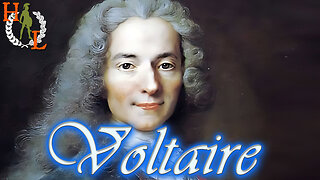 2:10:58
2:10:58
Heroes and Legends Documentary Channel
4 months agoVoltaire: The Rascal Philosopher
31 -
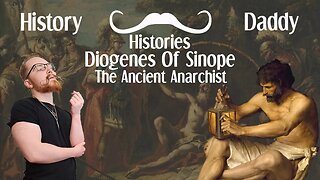 31:17
31:17
History Daddy
1 year ago $0.01 earnedDaddies Histories | Diogenes Of Sinope | The Ancient Anarchist
147 -
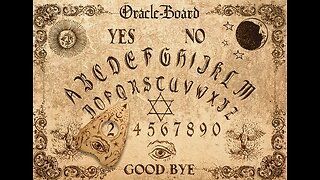 14:21
14:21
sststr
1 year ago $0.01 earned"The Literature of Occultism" by Arthur Machen
244 -
 54:01
54:01
InnerLight
1 year agoThe Betrayal by Technology, A Portrait of Jacques Ellul (1992)
339 -
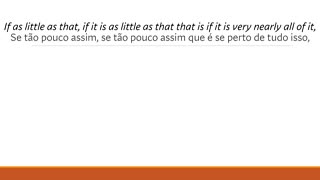 5:33
5:33
Leomont83
1 year agoRecitation NEW (NOVO) by Gertrude Stein (Pittsburgh, USA,1874 - Paris, France, 1946)
53 -
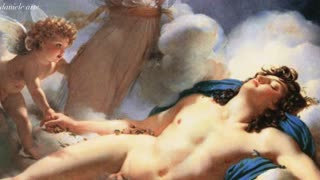 3:40
3:40
danielearte
1 year agoPierre Narcisse Guérin All the Beauty
35 -
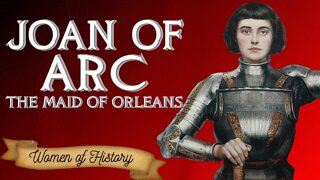 9:42
9:42
Parry This
1 year agoJoan of Arc The Maid of Orléans - The Savior of France
1134 -
 6:22
6:22
Wisdom
9 months agoJean-Jacques Rousseau's Legacy: Quotes That Resonate with Today's Issues.
34 -
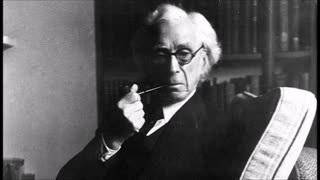 1:23:24
1:23:24
The Memory Hole
5 months ago"I don't think that people should be judged by their ideology": Bertrand Russell (1962)
8091 -
 4:43
4:43
AI Historic Expeditions
1 year agoEPISODE 1: JOAN OF ARC (Jeanne d'Arc): Influential Women of French History
4